
· 1st Award Recipient
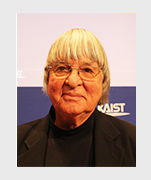
James Dator, Professor Since 1969, Professor Dator has been a professor of political science at the University of Hawaii and director of the Hawaii Research Center for Future Studies, an affiliate of the University of Hawaii. He was one of the first generation of researchers in the field of futurology who have studied the future since the early 1960s and was the president of the World Future Studies Federation in 1983. In 1977, he founded the Institute for Alternative Futures in Washington D.C., along with Alvin Toffler and Clement Bezold.
· 2nd Award Recipient

David E. Van Zandt, President Van Zandt is the 8th President of The New School. He is a dedicated educator and innovative leader with academic expertise in sociology and law. Prior to being appointed as the President of The New School, he served as the Dean of the Northwestern University School of Law from 1995 to 2010. He worked hard to change the school’s admission and curriculum to prepare students for new demands in the global market. During his time as Dean, the school changed its approach towards admission, education, and social participation. As an educational institution leader, he emphasized academic excellence, encouraged scholarships, and contributed greatly towards positive changes that improved the quality of life for both students and educators.
· 3rd Award Recipient
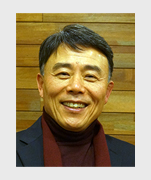
Yeon-Soo Park, Professor Professor Yeon-Soo Park, former head of the National Emergency Management Agency, has spent the past decades planning and implementing national projects, which includes the location of Incheon International Airport, New Songdo Information City, Incheon Bridge, and Yongyu-Muido International Tourism Recreation Are. As a result, Incheon international Airport ranked No.1 in the world for 9 consecutive years in airport service evaluation (ASQ), and Songdo International City became a hub for GCF (Green Climate Fund, size comparable to World Bank) headquarters, a number of UN organization and World Bank Korea offices. Given the development of Incheon, which has changed the most dynamically in Korea today, one can realize how much the insight and tenacity of a public official ahead of his time contributed to changing history of a nation.
· 4rd Award Recipient
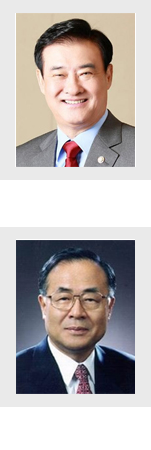
Chang-Hee Kang, Former National Assembly Speaker; Jung-Wook Seo, Former minister of Science and Technology One of the key contributing factors to the development of South Korea as a global IT powerhouse was the commercialization of CDMA, which opened the digital era of mobile communication. Dr. Jung-Wook Seo, a telecommunications technology expert, who was then President of Korea Mobile Communication started and led the world’s first commercialization of CDMA. At the time, Qualcomm had bought the theory from Silicon Valley scientists and was established and kept as a theory (patent). But after the successful commercialization in Korea, the first in the world, the CDMA development project instantly upgraded the level of Korea’s mobile communication technology, which became absolutely inferior in the commercialization sector as well as in the mobile communication sector. The biggest challenge faced in commercializing CDMA technology was the National standard for mobile communications. In 1995, when many experts disagreed and were opposed to the national standards and corporate interests were uncertain, Chang-Hee Kang, then Chairman of the National Assembly’s Communications Science and Technology Committee, played a crucial role in the decision to make CDMA technology a part of the National standard. Former National Assembly Speaker Chang-Hee Kim and Former Minister of Science and Technology Jung-Wook Seo were the main players in the “World’s First Commercialization of CDMA Technology and Determination of National Standards” and made significant contributions to the future development of Korea.
· 5rd Award Recipient
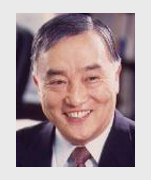
Geun-Mo Jeong, Professor Geun-Mo Jeong, former Minister of Science and Technology, joined the International Atomic Energy Agency (IAEA), an UN-affiliated organization, in 1957 to conduct research on nuclear fusion energy and was able to produce 3 nuclear power plants in total, 1 small-size, 1 for commercial use, and 1 for experimental use. The Korea Institute of Science and Technology (currently Korea Advanced Institute of Science and Technology) established an STS research institute within a special graduate school in science and engineering to help Korea develop various policies in the heavy industry and develop scientific and technological advancements necessary for industrial development. The development of the TDX (Time Division Exchange) system contributed to the development of information and communication technology and became the foundation of information and communication technology powerhouses. The Korean Standard nuclear power plant has been objectively recognized as having the world’s best performance and played a major role in creating the standard for nuclear reactors in Korea.
· 6rd Award Recipient
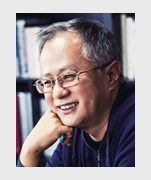
Seung-Hwan Song, Director Seung-Hwan Song (born January 10, 1957) is a South Korean actor, host, radio DJ and producer who graduated Whimoon High School and Hankuk University of Foreign Studies majoring in Arabic. He debuted as a child actor in 1965 portraying Sungwoo and actively worked as a teen star. After becoming a producer, he directed the musical performance ‘Nanta’, which won a special award at the 1998 Korea Musical Awards. Currently, he is the Chairman of PMC Productions, artistic director, and Professor of Culture and Arts Management Department at Sungshin Women’s University. Director Seung-hwan Song was the organizer of the Original Korean Hallyu Wave content ‘Nanta’ and served as the General Director of the opening and closing ceremony of the 2018 PyeongChang Winter Olympics to globally promote the achievements of Korea Hallyu Wave content.
· 7rd Award Recipient
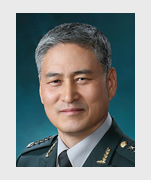
Yong-Woo, Professor Visiting Professor Yong-Woo Kim, the 47th Army Chief of Staff, has actively engaged in military diplomacy such as benchmarking defense reforms and cooperation in defense science and technology through overseas business trips in over 10 countries. He has also organized various seminars, signing of agreements, and establishing new organizations for innovation in science and technology aligned with the rapidly changing security environment, such as troop reductions, shorter military service periods, and advanced technology development. During his time as chief of staff, he pushed for future-oriented army construction for future planning through Future Innovation Research Centers and AI and Big Data Centers. He established the concept of ‘Concept Army’, ‘Future Army’, ‘Middle Army’ and ‘Modern Army’ to go beyond the limits of Army Vision 2030, he designed the”Army Vision 2050 Establishment“.
· 8rd Award Recipient
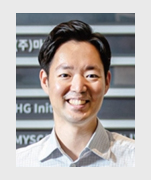
Kyung-Sun Chung, Chairman Chairman Kyung-Sun Chung created a root impact to support social innovators and 2 years later. He founded HGI for investment in social ventures. HGI is an influential business firm that seeks to solve many of the problems facing society with sustainable and innovative business ideas. It was highly praised for creating spaces and communities for solving various societal problems in innovative ways, helping social enterprises solve problems in sustainable forms, and raising awareness of the importance of social values and realization of the potential of social enterprises.
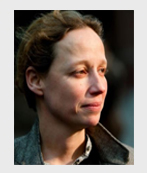
Marine Buissonniere, Global Health advisor
Marine Buissonnière is an independent advisor and practitioner in the fields of global health, health-related rights, and humanitarian action. From 2003 to 2007, Buissonnière served as secretary-general of MSF International (Médecins Sans Frontières/Doctors Without Borders). She worked with MSF in the field between 1995 and 2003 (including in China, the occupied Palestinian territories, Japan, and the two Koreas). Until 2015, Buissonnière was director of the Open Society Public Health Program, where she worked to improve access to health care for marginalized members of society, including people who use drugs, sex workers, transgender people, people with mental disabilities, the Roma, and those in need of palliative care. Some of her other engagements have included Lifebox Foundation (review of the surgical checklist at 10 years); MSF (review of critical incidents; context analyses; research on attacks against health care); Open Society Foundations (access to medicines and mental health strategies); American Jewish World Service (humanitarian program evaluations); Essex University (research on the criminalization of health care); Republic of Korea’s Ministry of Unification; and Vox Media. She currently works as senior advisor to the Prevent Epidemics team at Resolve to Save Lives, where she partners with governments around the world to implement evidence-based strategies to find, stop, and prevent disease threats, with a particular focus in the past 18 months on COVID-19. She also co-chairs MSF’ Transformational Investment Capacity, which aims to transform MSF’s ability to address the most pressing medical and humanitarian challenges around the world. She serves on the Advisory Council of Last Mile Health; on the Board of Directors of Grand Challenge Canada; and on the advisory board of the Global Health Center of the Geneva-based Graduate Institute of International and Development Studies. Buissonnière holds a master’s degree in public policy and a health and health policy graduate certificate from Princeton University’s School of Public and International Affairs.